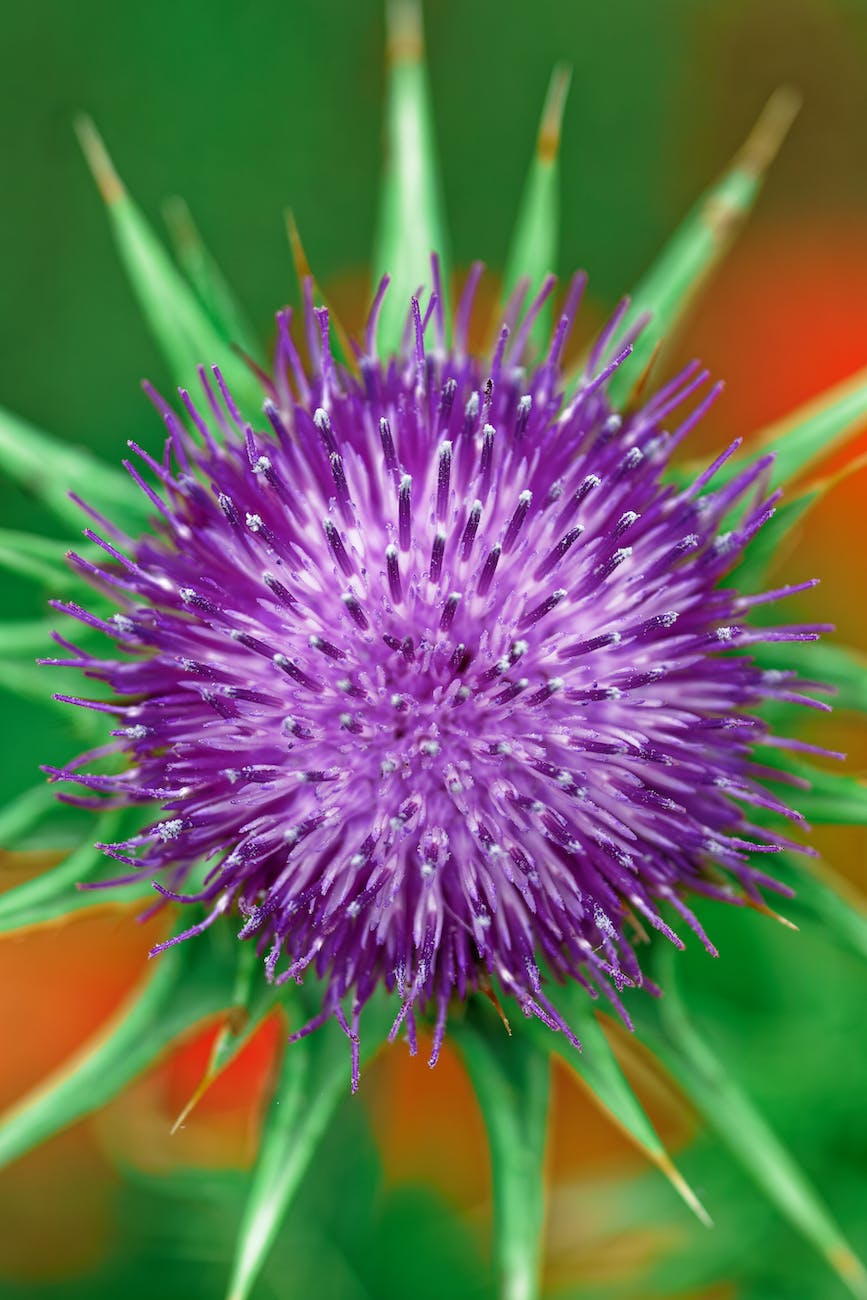
Introduction:
The world of herbal medicine is vast, and standing tall within it is the renowned milk thistle or Silybum marianum. This Mediterranean native has been a subject of intrigue and study for centuries. In this expansive guide, we’ll journey through the multifaceted benefits of milk thistle, delve deep into its potential side effects, and address the myriad questions that surround this potent herb.
Table of Contents:
- The Rich History of Milk Thistle
- Health Benefits: Beyond the Basics
- Side Effects: An Exhaustive Examination
- Addressing the Multitude of Queries
- Concluding Thoughts: Recommendations and Further Insights
The Rich History of Milk Thistle:
Milk thistle, characterized by its striking purple flowers and sharp-edged leaves, has been a medicinal staple since ancient times. The seeds house silymarin, a complex of compounds that has been the focal point of numerous scientific studies.
Health Benefits: Beyond the Basics
- Guardian of the Liver: Milk thistle’s hepatoprotective qualities are legendary. It not only aids in liver cell regeneration but also offers protection against toxins, making it invaluable for those with liver conditions.
- Antioxidant Dynamo: Silymarin combats oxidative stress, shielding cells from free radical damage, and potentially slowing the aging process.
- Anti-inflammatory Maven: Its prowess extends to reducing inflammation, offering potential relief for conditions ranging from skin disorders to inflammatory bowel diseases.
- Blood Sugar Ally: Preliminary research paints a promising picture of milk thistle as a support for diabetic patients, enhancing insulin sensitivity and stabilizing blood sugar levels.
Side Effects: An Exhaustive Examination
- Digestive Upsets: Some users might experience a spectrum of gastrointestinal issues, from mild bloating to more severe diarrhea or constipation.
- Allergic Reactions: Symptoms can vary from hives and skin rashes to more severe anaphylactic reactions in rare cases.
- Hormonal Interplay: There’s emerging evidence suggesting milk thistle might mimic estrogen, potentially affecting those with hormone-sensitive conditions.
- Medicinal Interactions: Particularly concerning are potential interactions with cholesterol medications, blood thinners, and certain antipsychotics.
- Mood Fluctuations: A few users have reported mood swings or feelings of depression, though these are less common.
- Blood Pressure Variations: Some individuals might experience a slight drop in blood pressure.
Addressing the Multitude of Queries:
- Milk Thistle and NAC Synergy: While they’re a powerful duo for liver health, it’s crucial to monitor for compounded side effects, especially gastrointestinal issues.
- Dosage Dilemmas: Whether you’re considering a mild tea or a potent 1300 mg supplement, understanding the right dosage is key to maximizing benefits and minimizing risks.
- Herbal Combinations: Pairing milk thistle with herbs like dandelion or turmeric? While the benefits can be amplified, so can the side effects.
- Safety in Special Populations: Pregnant or nursing mothers, children, and those with a history of hormone-sensitive cancers should approach milk thistle with added caution.
- Duration of Use: How long is too long? We’ll explore the ideal duration for milk thistle supplementation.
FAQs forSide Effects Milk Thistle:
1. What is the primary active compound in milk thistle? Silymarin, a complex of compounds found in the seeds of the milk thistle plant, is responsible for its therapeutic properties.
2. How does milk thistle support liver health? Milk thistle aids in liver cell regeneration, offers protection against toxins, and has shown potential in treating liver-related conditions like cirrhosis, hepatitis, and fatty liver disease.
3. Can I take milk thistle daily? While many people take milk thistle daily, the ideal dosage and duration depend on individual health needs and potential interactions with other medications or conditions. It’s always best to consult with a healthcare professional.
4. Are there any medications that might interact with milk thistle? Yes, milk thistle can interact with certain medications, including cholesterol drugs, blood thinners, and some antipsychotics. Always discuss with a doctor before combining milk thistle with other medications.
5. Is milk thistle tea as effective as supplements? Milk thistle tea offers a gentler dose of the herb’s benefits, while supplements provide a more concentrated form of silymarin. The choice between tea and supplements depends on your health goals and how your body responds.
6. Who should be cautious when taking milk thistle? Individuals with hormone-sensitive conditions, those on certain medications, pregnant or nursing mothers, and children should approach milk thistle with added caution and seek professional advice.
7. Can milk thistle help with skin conditions? Thanks to its anti-inflammatory and antioxidant properties, milk thistle has been explored as a remedy for various skin conditions, including acne and eczema. However, results can vary among individuals.
8. How does milk thistle impact blood sugar levels? Emerging research suggests that milk thistle may improve insulin sensitivity and help stabilize blood sugar levels, making it a potential ally for those with type 2 diabetes.
9. Are there any mood-related side effects associated with milk thistle? While less common, some users have reported mood swings or feelings of depression. It’s essential to monitor any new or unusual symptoms when starting milk thistle.
10. Can I combine milk thistle with other herbs like turmeric or dandelion? Combining milk thistle with other herbs can amplify the benefits, but it might also increase the risk of compounded side effects. It’s crucial to understand the interactions and consult with a herbalist or healthcare provider.
Concluding Thoughts: Recommendations and Further Insights:
Milk thistle, with its vast array of benefits, is undeniably a gem in herbal medicine. However, it’s essential to navigate its use with knowledge and caution. Always prioritize a personalized approach, considering individual health backgrounds and potential interactions.
Call to Action: “Passionate about deepening your understanding of herbal remedies? Dive into our treasure trove of articles, insights, and updates by subscribing to our enlightening newsletter!”
Blog Tags for the Post: Milk Thistle, Silymarin, Liver Health, Herbal Medicine, Antioxidants, Anti-inflammatory, Blood Sugar Regulation, Herbal Interactions, Natural Supplements, Side Effects, Holistic Health, Dietary Supplements, Medicinal Herbs, Detoxification, Liver Support.









